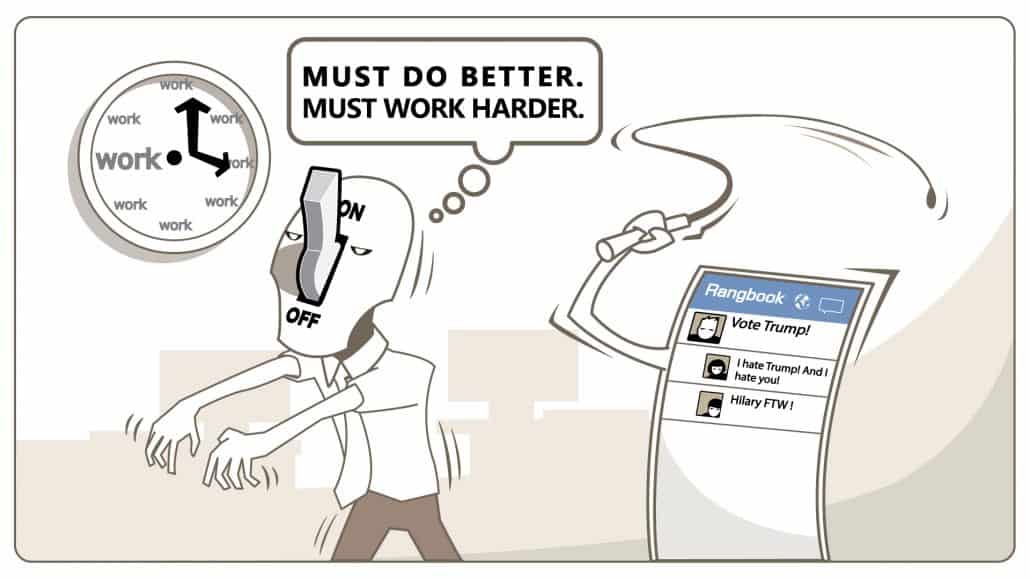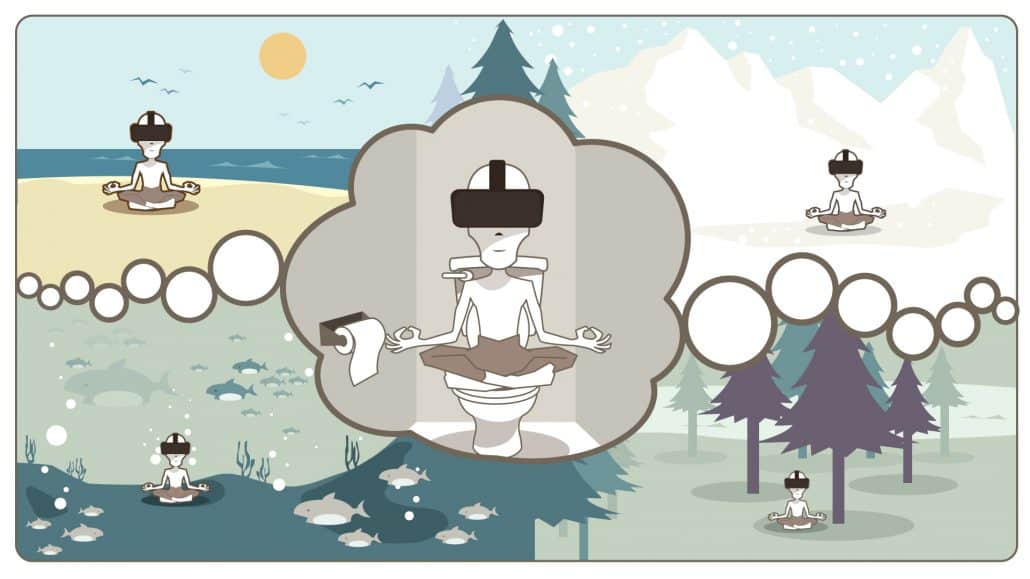In the modern world we are always switched on, always connected, always on the move. In many ways technology has shrunken the world and brought us closer together, but it’s also made it harder to detach from the stresses of life. At one time in the not too distant past, you only got the news three times a day. Once in the morning paper, once on the evening news and once again on the late night news if you stayed up to watch it. Generally, leaving work at 5pm meant leaving work behind until the next day, and a discussion of politics was an occasional and invigorating event among friends.
Thanks to technology, we have access to news twenty four hours a day as it happens and it seems to be either bad news or entirely inane. Work can not only reach you at home but anywhere you happen to be, and often you are connected enough to drop everything and do what needs to be done right where you are. Political discussions have given way to the incessant background noise of constant political disagreement. As wonderful as technology is, these and many other aspects of it, can make life more stressful and so it is no wonder that people want to switch off and reconnect with nature or themselves. For this, many turn to meditation retreats.

When I think of meditation retreat I imagine a group of people in a fancy resort-like setting with a spa and a lawn peppered with white fountains where you meditate at your leisure and make good friends. This is not necessarily the case. In fact, in researching this article I’ve yet to come across a single retreat that offers these things. Instead, meditation retreats seem to be strictly regimented, silent affairs where even eye contact is forbidden. There may be some yoga, but the point of the retreat is to spend time in your own mind, so most of your day will be spent in non-optional meditation in a room with everyone else.
For the intense and/or religious meditation practitioners these retreats are probably just fine. But for the rest of us, the ones who don’t want to live like a monk for a month, virtual reality may be the answer. While trying to replace a month long meditation retreat with current virtual reality technology is probably not a good idea, if not entirely impossible, that doesn’t mean virtual reality has nothing to offer. With virtual reality you could set up a mini retreat right in your own home, one that you can squeeze into your busy schedule without taking a sabbatical.
Virtual Reality can take you out of your environment and place you anywhere that can be displayed on a screen. You are not limited to what is physically possible. You can float through the clouds, meditate on the moon, and drift gently under the ocean while watching the fishes. You could even be a disembodied something floating among wisps of light. That’s the great thing about virtual reality, it can put you anywhere that the developer can imagine.
When you think of virtual reality you might think only about the headset, but virtual reality is already far more encompassing than that and will only get more so as time goes on. Already we have spatial audio and on some virtual reality devices, tracked controllers that put our hands in the virtual world in addition to the headset. This means that virtual reality can replace your world with another one. One that you can hear and interact with. When done well it becomes very convincing.
Currently meditation and relaxation applications are most widespread on the Samsung Gear VR. While this limits their immersive qualities, it does make them portable and available whenever you need them. Simply pop your phone into your headset and throw on some headphones and you will find yourself on a beach, or in a forest where you can take the time you need to draw in your thoughts, concentrate on your breathing and relax. This can even be done as a short meditation retreat during your lunch break while still leaving you enough time to eat or to unwind when you get home from work (even if it means sneaking into the washroom to do it.)

As VR develops virtual meditation retreats could become much different. Those who are developing virtual reality technology say that the end goal is something like the holodeck from Star Trek. In case you are not familiar, the holodeck is a room that creates virtual environments that are indistinguishable from the real thing. Some say that we could have something very close, minus the ability to touch the holograms, by 2024. Assuming that the tech becomes available eventually, even if not by 2024, you could conceivably have an entire proper meditation retreat without leaving your home.
Holodecks are a long way off. The tech we have right now will allow for short relaxing respites away from the hustle and never-ending bustle of modern life and, for most of us, that’s all we can afford anyway. If used daily the benefits from short virtual reality meditation sessions would have a greater impact than a retreat that is completed and then abandoned. It also won’t break the bank. Plus, let’s be realistic, when the holodeck technology comes about, if history is to be trusted, it will recreate your office at home, so you never have to leave.
Be careful what you wish for.


